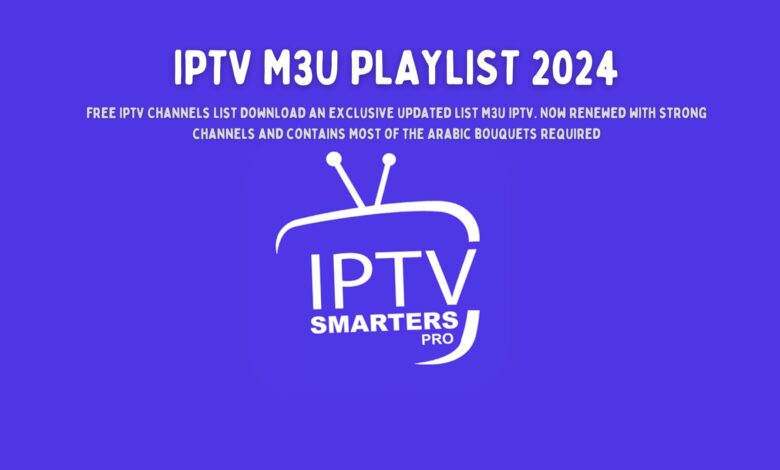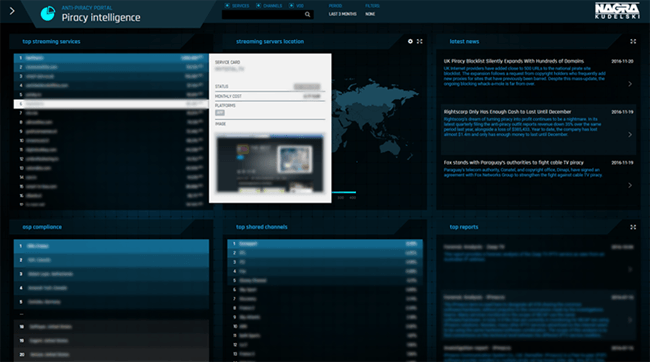How NAGRA Fights Kodi and IPTV Piracy * TorrentFreak

 Nagravision or Najra It is one of the most famous companies working in the field of digital cable and satellite content security. Due to successes spanning several decades, the company often proved unpopular with pirates.
Nagravision or Najra It is one of the most famous companies working in the field of digital cable and satellite content security. Due to successes spanning several decades, the company often proved unpopular with pirates.
In particular, Nagravision cryptosystems have regularly been a hot topic of discussion in cable and satellite piracy forums, frustrating those looking to receive pay-TV services without paying the associated high prices. However, the advent of the Internet now poses new challenges.
NAGRA still protects traditional cable and satellite television services in 2017; Virgin Media in the UK is a long-standing customer, for example. But the advent of internet streaming means that pirate content can now be easily delivered to the home, bypassing a pay-TV provider’s entire infrastructure. Hence, the NAGRA cipher.
This means that NAGRA was required to spread its wings.
As reported in April, NAGRA is setting up a laboratory to monitor and detect unauthorized consumption of content via set-top boxes, websites, and other streaming platforms. That covers the ubiquitous Kodi phenomenon, along with premium illicit IPTV services. TorrentFreak caught up with the company this week to find out more.
“NAGRA has an automated monitoring platform that scans all live channels and VOD assets available on Kodi,” Evan Schneider of NAGRA reported to the staff.
“The service we provide to our customers automatically finds illegal distribution of their content on Kodi and removes the offending streams.”
In the first case, NAGRA sends standard takedown notices to hosting services to terminate illegal streams. The company says that while some companies are very cooperative, others are less so. When faced with resistance, NAGRA turns to more coercive methods, described here by Christopher Schouten, NAGRA’s Director of Product Marketing.
“Removals are generally sent to streaming platforms and hosting servers. When that doesn’t work, advanced takedowns allow us to use both technical and legal means to get results,” says Schotten.
“Many stories in recent days show how popular Kodi add-ons for example have been removed by their authors simply because of the threat of legal action like this.”
At the center of operations is NAGRA’s Piracy Intelligence Portal, which gives customers a real-time view of worldwide online piracy trends, information about the infrastructure behind illegal services, as well as statistics and status of takedown requests.
“We measure removal compliance very carefully using our hacking intelligence portal, so we can usually anticipate the results we’ll get. We work on a daily basis to improve relationships and engage with those who are less compliant,” says Schotten.

While persuasion is likely the best solution, some hosts inevitably refuse to cooperate. However, NAGRA also offers a NexGuard A system capable of identifying the original source of the content.
“By using forensic watermarks to trace the source of the leak, we will be able to stop the ‘leak’ completely at the source, independently and within minutes of discovering it,” says Scotten.
Whatever path is taken, NAGRA says the goal is to remove streams as quickly as possible, something that we hope will undermine confidence in piracy services and encourage users to return to the legal market. Interestingly, the company also says that it uses “technical means” to undermine piracy services to the point where consumers lose faith in them.
But while Kodi boosted setups and illicit IPTV are certainly a big threat in 2017, they are not the only problem that content companies face.
While Apple’s platform is quite narrow, the open nature of Android means that there are an increasing number of apps that can be sideloaded from the web. These allow pirate content to be consumed quickly and easily within a shiny interface.
Apps like Showbox, MovieHD, and Terrarium TV round out the movies and TV shows segment, while popular Mobdro accomplishes the same with live TV, including premium sports. Schneider says NAGRA can deal with applications like these and other emerging threats in a number of ways.
“In addition to its Kodi-related anti-piracy activities, NAGRA offers a service that automatically finds illegal distribution of content on Android apps, fully loaded STBs, M3U playlist, and other platforms providing plug-and-play solutions for big screen TV; this service also includes the removal of offending streams.”
M3U playlist hacks don’t get much press. An M3U file is a text file that identifies locations where content (such as streams) can be found across the Internet.
In its most basic “free” form, it’s simply a case of finding an M3U file on an indexing website or blog and loading it into VLC. It’s not as flashy as any of the apps mentioned above, and unless one knows where to get free M3Us quickly, many channels may already be offline. Premium M3U files are widely available, however, and tend to be very reliable.
But while attacking sources of infringing content is a big part of NAGRA’s mission, the company is also employing softer strategies to deal with pirates.
“In addition to disrupting pirate streams, raising awareness among users that these services are illegal and helping service providers offer competing legitimate services, are also key areas in the fight against premium IPTV piracy where NAGRA can help,” says Schneider.
“Converting users of these services into legitimate paying subscribers presents a huge opportunity for content owners and distributors.”
For this to work, Scotten says, there needs to be an understanding of the various motives that drive an individual to commit hacking.
“Is it the price? Is it availability? Is it a job? ” Asked.
Interestingly, it also reveals that a lot of people spend a lot of money on IPTV services which they think are legal but are not. Rather than detract from their high prices, they actually add to their air of legitimacy.
“These consumers can be converted relatively easily into paying subscribers if they can be convinced that pay TV services offer high quality, reliability and convenience because let’s face it, most IPTV services are still a bit dodgy to use,” he says.
“Education is also important; this is done by working with service providers to inform consumers via social media platforms of the risks associated with the use of illegal streaming devices/IPTV devices, such as buying boxes that may not work after a short period of time.”
And so the battle over content continues.
